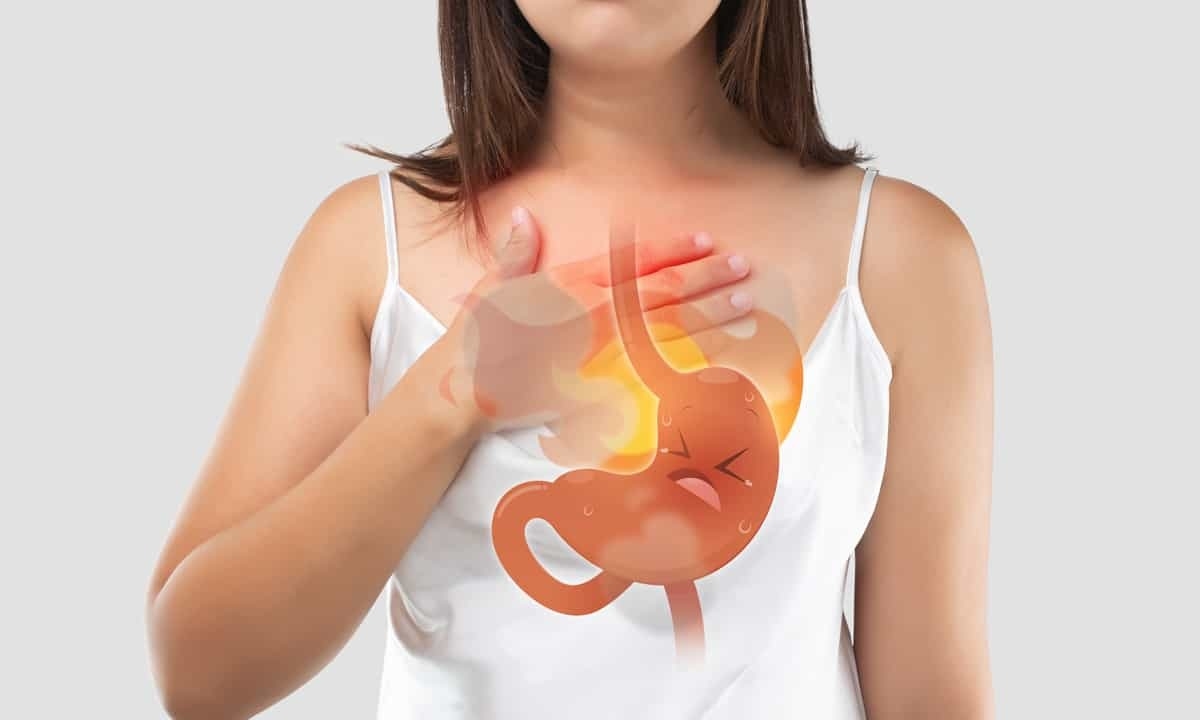The occasional heartburn is a frequent problem. Here are seven tips for quick heartburn relief. It is not uncommon for stomach acid to flow into the esophagus, causing symptoms such as:
- Bloating
- A bitter taste in your mouth
- Burning feeling in the chest
- Belching
- Pain is getting worse by bending over or lying down
Heartburn, while not usually dangerous, is unpleasant and can interfere with daily tasks. Most people get relief from antacids or by changing their diet or other personal health habits.
If you experience frequent heartburn, your GERD doctor may recommend tests to discover the reason and a long-term treatment plan. However, if you just get heartburn on occasion, one of the following techniques and tactics may help you find relief.
The 7 tips for fast heartburn relief
When you experience the familiar burning of heartburn, you need immediate relief. For occasional symptoms, consider one of these heartburn remedies.
1. Take antacids
Over-the-counter antacids can neutralize stomach acid and cure burns in seconds. This relief can persist for up to three hours. Keep antacids on hand in case of an occasional burn.
2. Chew gum
Gum chewing stimulates saliva production, which may help keep acid in your stomach where it belongs.
3. Loosen your belt
Tight clothing that squeezes your midsection might push acid up into your esophagus. If you frequently get heartburn, loosen your belt or wear loose clothing.
4. Check your posture
Slouching or sagging in your seat might cause pressure on your abdomen, perhaps pushing acid into your esophagus. Changing your posture may help reduce gastric acid.
Sit erect with your shoulders back, especially after meals, to reduce reflux. If you work at a desk, adjust your chair and monitor to promote proper alignment. Even little modifications, such as standing up and stretching often, can have a significant impact on how you feel.
5. Save the snack
Going to bed with a full stomach might cause acid to leak into your esophagus as you lie down. Stop eating three hours before bedtime to ensure a restful night's sleep. Late-night munching may be pleasant, but it might result in really severe reflux. Choose a light, early dinner and avoid the midnight fridge raid. Your stomach and sleep will thank you.
6. Change sleep positions
Elevating the head of your bed or lying on your side may help to minimize acid reflux and nocturnal heartburn. Sleeping on your left side is generally recommended because gravity may assist in maintaining acid in its proper place. Consider placing a wedge pillow or blocks beneath your bedposts to lift your head 6 to 8 inches. A few simple tweaks can transform sleepless evenings into restful ones.
7. Manage your stress
Chronic stress can impede digestion, causing food to remain in your stomach for longer periods. The longer food remains in your stomach, the more likely you are to get heartburn. To reduce your stress response, take a break from a stressful environment and focus on your breathing.
When to Call Your Doctor
Everyone experiences occasional heartburn, but if your symptoms occur more than twice per week, persist for more than two weeks, or appear to worsen, contact your doctor to make an appointment. You should also consult your physician if:
- You’re in extreme pain
- You notice blood in your stool
- You’ve had unexplained weight loss
- You have difficulty or pain when swallowing
- You are hoarse or tend to wheeze
- You’ve tried antacids for more than two weeks without relief
- Your heartburn comes with nausea or vomiting
- You have a cough or feel a lump in your throat
- You are having diarrhea or black bowel movements
Uncontrolled heartburn not only makes your daily life miserable, but it can also damage your esophagus, increasing your risk of cancer in the future. Your gastroenterologist can identify the underlying cause of your heartburn and work with you to develop a treatment plan.






Comments